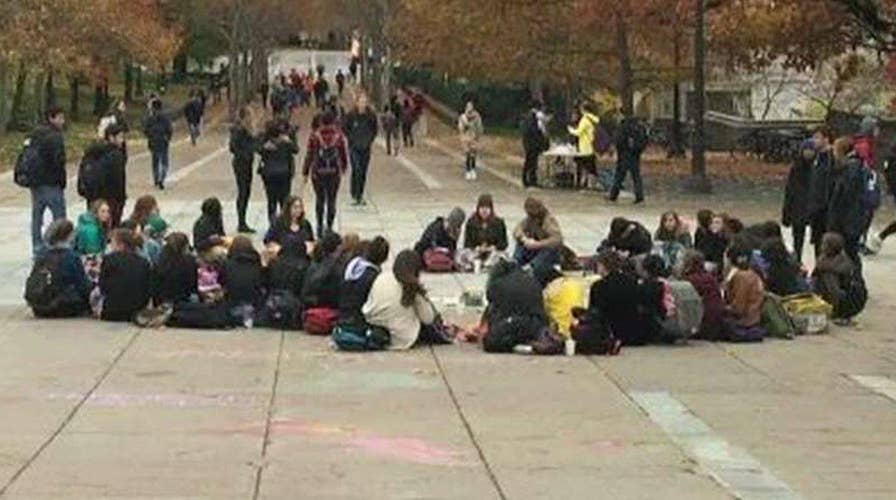The president of the university founded by Thomas Jefferson is being asked to stop quoting Thomas Jefferson.
A Friday letter signed by 469 students and professors objected to University of Virginia President Teresa Sullivan quoting the third U.S. president and Declaration of Independence author in a campus email because Jefferson owned slaves, The Cavalier Daily reported.
“I think that Jefferson is often celebrated for his accomplishments with little or no acknowledgement of the atrocities he committed against hundreds of human beings,” said Asst. Psychology Prof. Noelle Hurd, who drafted the letter.
MIDTERM OPTIONAL FOR STUDENTS DISTRAUGHT OVER TRUMP WIN
Though Jefferson penned the line “all men are created equal,” Hurd said Jefferson’s words “communicated to me a message of exclusion.”
The trouble started for Sullivan due to a Nov. 9 email she sent to try to urge unity following the presidential election.
NYU BRINGS BACK PROFESSOR WHO BLASTED PC CULTURE, GIVES HIM A RAISE
“Thomas Jefferson wrote to a friend that University of Virginia students ‘are not of ordinary significance only: they are exactly the persons who are to succeed to the government of our country, and to rule its future enmities, its friendships and fortunes,’” Sullivan wrote. “I encourage today’s U. Va students to embrace that responsibility.”
The student-professor response acknowledged that Jefferson's legacy had inspired some students and faculty to come to the University, however, "others of us came here in spite of it."
Politics Prof. Lawrie Balfour, who signed the letter, said Jefferson’s words have often troubled her during her 15-year tenure at the University.
“Again and again, I have found that at moments when the community needs reassurance and Jefferson appears, it undoes I think the really important work the administrators and others are trying to do,” Balfour said.
The Cavalier Daily could not immediately reach Sullivan for comment.
Jefferson, who also served as a U.S. vice president and secretary of state, founded the University of Virginia in 1819 and was involved with the University until his death in 1826.


